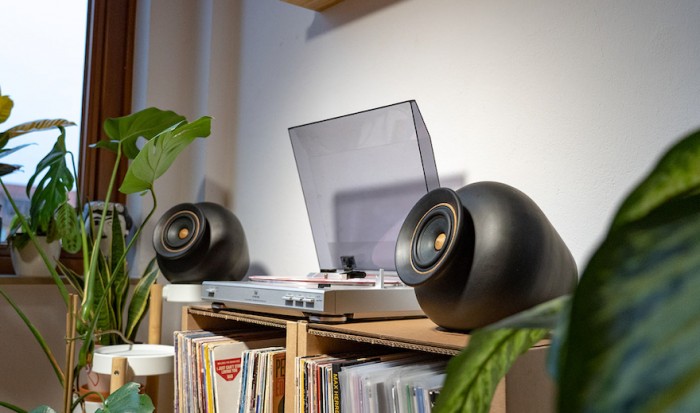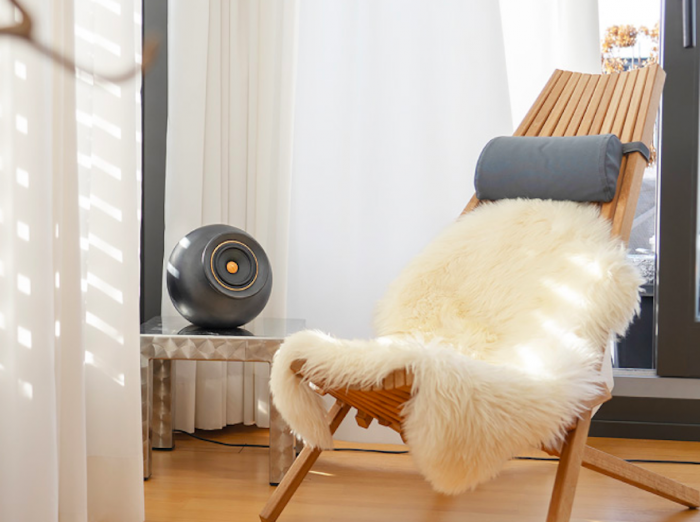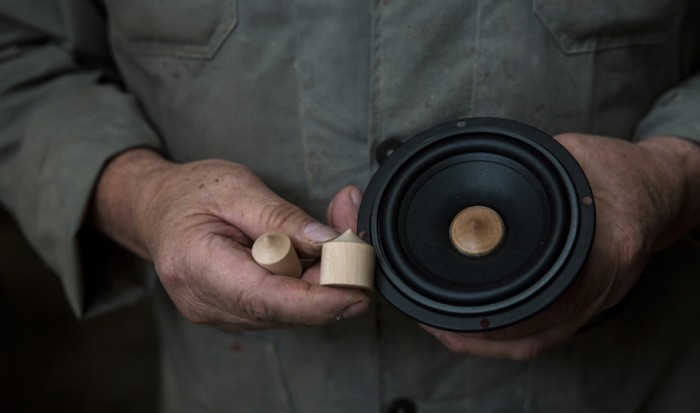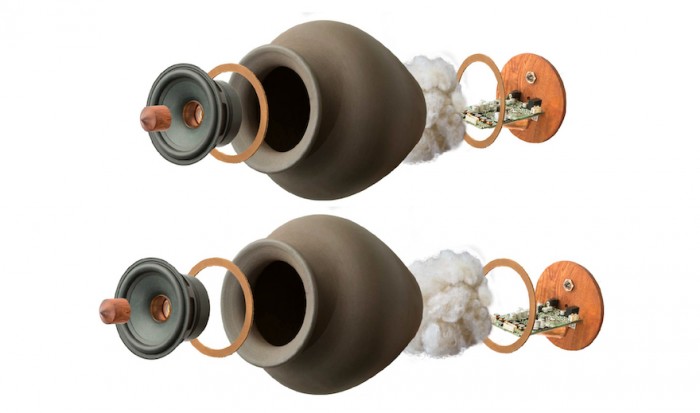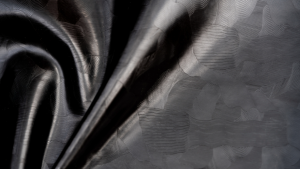What Design Can Do’s No Waste Challenge asked designers to come up with innovative ways to reduce waste, and combat climate change through design.
It recently announced its 16 winners – standout proposals from all over the globe whose designs look at ways to use resources better, design with less waste, and reuse where possible. Mapu, one of the final 16, is an ingenious sound system handmade using clay that reunites traditional crafts and technology through heritage-led-innovation.
Mapu’s German design team created the solution in answer to the problem of mass production. “All over the world crafts are facing the same challenges; traditional knowledge and millennia-old traditions are being substituted by industrial mass-production, craftspeople are lacking opportunities and therefore also successors. And many distinctive and natural materials with amazing properties are underestimated and ignored,” says Mapu’s Philine von Düszeln.
The project seeks to preserve traditional skills and culture by uniting two seemingly contrasting worlds – craft and technology. Mapu is the world’s first active sound system made of clay, wood, cork and wool. It is an eco-friendly high-tech product that fuses state-of-the-art electronics with ancestral craft techniques.
“Our speakers are locally produced in traditional workshops in rural areas and inspired by the respective visual cultures, ultimately supporting the formation of a new generation of potters through heritage-led-innovation!” says Von Düszeln.
Not only does this help to celebrate and continue craft legacies, but by using natural materials, Mapu offers an alternative to the plastic usually used in the production of electronics. The product and packaging are made of 80% biodegradable materials.
The Mapu project aims to re-think not only the production method and materials, but also the process. In supporting craftspeople in rural areas and empowering communities to produce contemporary high-quality products locally, it disrupts this destructive cycle of waste. “We shorten the transportation routes as much as possible through regional production and distribution, and aim to soon reach a carbon neutral production,” adds Von Düszeln.
Collaborating with NGOs through artists series further allows consumers the opportunity to purchase a product with identity and history, and simultaneously supports a good cause. The idea is to produce limited regional series all over the world in areas with a ceramic heritage, ultimately encouraging others to rethink crafts and production methods. So far, there have been series in Portugal and Chile, with Morocco, Japan, India, Ethiopia and Italy having been identified as having similar potential.
"We dream of a world where ancient knowledge and skills become essential tools for the construction of the future. We have a vision that goes far beyond making speakers. We dream of a crafts re-evolution to give back to traditional handcrafts in our industrialised world,” says Von Düszeln.
Visit mapu-speakers.com for more.
Credits:
Sarah Mehler


